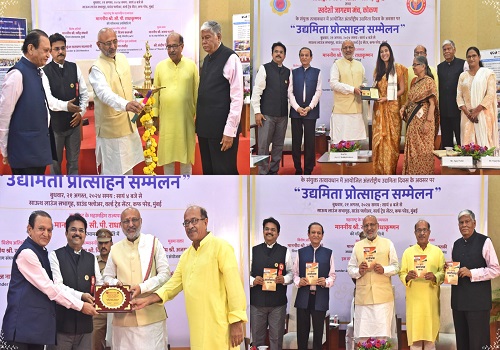Happy with regulatory relaxations Indian insurance sector wants more

Follow us Now on Telegram ! Get daily 10 - 12 important updates on Business, Finance and Investment. Join our Telegram Channel
India's insurance regulator is in reform mode with a series of industry friendly measures hoping that it would result in more people buying insurance protection.
Happy with the winds of change, the sector wants more relaxation.
The Insurance Regulatory and Development Authority of India (IRDAI) under its new Chairman Debasish Panda has been reviewing various sectoral regulations and is the process of relaxing many of them.
The IRDAI has slashed the number of offline returns submitted by the life insurers to four from 40 and the online returns to five from eight.
Further the regulator has extended the 'Use and File' procedure for most of the life insurance products.
"The announcement has empowered insurers since the entire process of product approval and launch has been simplified, thereby addressing a key challenge faced by insurers. While the move provides for speedy introduction of innovative products, Insurers will now have a greater responsibility to ensure robust product development and pricing along with policyholder protection," Shanai Ghosh, Executive Director & CEO, Edelweiss General Insurance Company Ltd said.
"The IRDAI's announcement will bring around a conceptual change that has been long pending and much-needed to ensure the advancement of the insurance ecosystem. Insurers will now be able to develop new solutions based on individual preferences and current needs," Sanjay Datta, Chief, Underwriting & Claims, ICICI Lombard General Insurance Company Ltd said.
The latest move comes after IRDAI had issued a circular freeing the life/non-life/reinsurers from filing product planner and other documents.
"Ideally the rationalisation focus should be on coming out with a comprehensive circular on enabling `use and file' for new products, fixing the company board responsible for losses suffered by policyholders and insurers liable to pay compensation and on solvency norms," an actuary had told IANS preferring anonymity.
Freeing insurers from filing product planner is of no great help but one positive move on the part of the IRDAI, he had added.
Meanwhile the insurance sector wants more from IRDAI like concession in licence renewal fee, increasing the incontestability period in the case of life insurance police to five years from three, allowing multi-level marketing.
"Multi-level marketing is not prohibited outside insurance, while pyramid schemes and money circulation schemes are prohibited. Network marketing constitutes a huge population of distributors who have huge customer relationships and can help increase insurance penetration. Since they operate on a variable cost model, it will also help reduce the cost of distribution for insurance companies," C.L. Baradhwaj, Executive Vice President, Future Generali India Life Insurance Company Limited, told IANS.
He also said for achieving higher penetration of insurance in under penetrated areas, the IRDAI should levy differential registration and licence fees.
Currently the fees for IRDAI registration and renewal fee is a percentage of the total premium earned by the insurers.
"The percentage of fees payable for premiums generated in under-penetrated areas shall be half the fees paid for penetrated areas. This will incentivize all the players, be it insurers or the Intermediaries to do more business in such areas. For intermediaries, the fixed fees payable upon renewal may be halved in case not less than 50 per cent of the total policies sold come from under penetrated areas," Baradhwaj said.
In order to cut down the fraudulent life insurance claims and delayed reporting of fraudulent claims the industry wants to increase the incontestability period by two years to five years.
Life insurers said there has been increase in fraudulent claims in certain pockets.
"Trends of such fraudulent claims getting reported late is also seen - high probability of fraudulent claims getting reported beyond the 3-year period to avoid repudiation of claims. In order to prevent fraudulent tendencies to delay reporting of claims after five years, it is also suggested that the incontestability provision be mandated only if the death happens after five years," Baradhwaj said.










Tag News

Monthly Debt Market Update, September 2023: CareEdge Ratings













